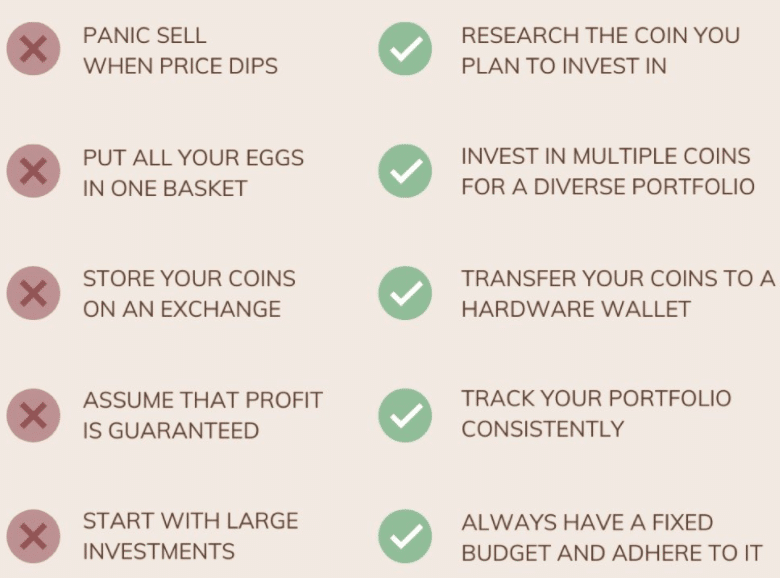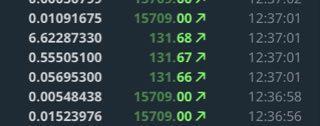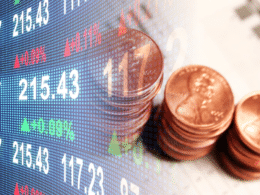Trading cryptocurrency may be pretty profitable, let’s face it. But, of course, the money goes to those who have a track record of success. And those who know how to avoid the most common mistakes in trading and investing. In general, new investors eager to join the burgeoning crypto market have never failed to be attracted by crypto profits.
But unfortunately, some players aren’t putting more money into their bank accounts, and even worse, some rookies continue to commit “obviously avoidable” mistakes. Up to seven will be covered in this essay, of course.
What is cryptocurrency trading, and how does it work?
One of the primary objectives in this type of trading is exchanging a single currency for another. Like forex, Bitcoin and other altcoins may be traded for fiat currencies like the USD or EUR. So naturally, this is one of the quickest and easiest ways to get started in the cryptocurrency world without mining your coins.

Let’s look at some common errors you should avoid while selling or trading crypto.
Seeking P&Ds
If you bought at the bottom, one of the most rewarding views for a trader is to witness a vertical green candle fly high in the air. Envy might be debilitating if you don’t have a stake in the race. As a result of FOMO, it’s all too easy to lose sight of what’s essential in your life. Most commonly, this strategy ends in your fetal position on the floor.
The price of a cryptocurrency might rise dramatically due to good news or an endorsement from a major influencer, but this is not always indicative of a pump and dump scheme. Before you put your money into a coin, you need to know why it’s so valuable. If you don’t, you might end yourself being slammed to the ground. Pump and dump strategies, which promise quick profits for minimal work, are popular among rookie Bitcoin traders. However, after a few losses, most individuals have learned their lesson and are looking for better trading strategies.
Investing in markets with low liquidity
For your money to rise in value, someone else must be willing to buy it from you. As a result, order books on many new cryptocurrencies and micro exchanges are pretty limited. So even if you feel that Sprouts (SPRTS) symbolizes the future of cryptocurrencies, you risk being connected with a coin that no one wants to buy, at least not at the price you desire.
Purchasing a currency with solid foundations as a long-term investment is perfectly acceptable. However, due to a lack of liquidity in the foreseeable future, these “undiscovered diamonds” are susceptible. As a result, sellers who have grown impatient with waiting for currency values to rise may be forced to accept a far lower price than they had initially planned.
Choosing the wrong price
Who hasn’t had coins quickly bought after misreading a zero when making a trade and placing a sell order ten times lower than necessary? Altcoins priced at 0.0000457 BTC make it simple to make a mistake: you think you’re putting a sell order for 0.00000457 BTC, only to find out that you placed one for 0.00000457 BTC.
Most exchanges will finish your order at the current highest bid in the order book, saving you the humiliation. Etherdelta, on the other hand, does not allow for as much customization. Double-check your buy or sale price before pressing the “Execute” button.

Sending the wrong coin to a wallet on an exchange
If you unintentionally transfer Bitcoin money to a BTC wallet, don’t look to your exchange for assistance. But the more significant exchanges are unlikely to come to their aid. Because mistakes are so difficult to erase, you must double-check before moving money to an exchange wallet. Two other rookie errors are using an Ethereum exchange wallet to send Ethereum tokens or mining pool revenue straight to exchange. Do not behave in this manner.
Revenge trading
Infuriated by the coin’s mooning, you back out of a purchase at the last minute. Even if you bought a banker and it didn’t work out, you still have the money in your bank account. To go back on the train to Profitville, you toss all your money into the next green coin. You’re putting yourself in a position where you haven’t adequately investigated the industry you’re joining.
What are the access and exit points for your facility? Who knows why the coin’s value is going up. You have no notion of what you’re doing since you’re reacting to your basic feelings. You may think of revenge trading as the same as finding your spouse in the arms of another person and then blindly throwing yourself at anything that comes your way so you can “even the score.”
Weeping is nearly usually the result. It is possible to improve as a trader by separating your trading from your emotions. For revenge trading, you’re likely to wind up with some massive alt bags.
Overtrading
In the same way that too many cooks might ruin a pot of soup, too many trades can wreak havoc on your profits. It’s an easy trap to fall into, and beginning traders are no exception. You buy a coin, and the next day it has climbed in value by 20%. What if you could make money by selling your product? No, there’s no way. As the phrase goes, “Cut your losses and let your gains run.”
Clumsy trading tactics like selling an item merely because it’s lucrative might lose some of your most significant gains. When you sell a coin for a bit of profit to see it climb tenfold, nothing is more frustrating. On the other hand, trading too much for too little profit might deplete your funds quickly because of the high exchange fees associated with such activity.
Overconfidence
You decide to buy a coin for whatever reason, and it goes up in value over the next week. Using a different coin will get the same result. You’ve got it going on. You’re in command of this situation. It’s as though everything you touch is worth its weight in gold. You pile into your next pick on a roll, which you can just sense is ready to the moon, and then it dumps. What happened? You got cocky, that’s what.
Upsides and downsides
Now let’s look at the upsides and downsides of selling cryptocurrency.
| Upsides | Downsides |
| Traders can easily sell off their crypto assets and transfer funds to stable coins or fiat. | You may not be able to short sell your crypto assets in the spot market. |
| Selling crypto assets is a means to book floating profits. | Sell-off during a pumping phase may deprive you of potential profits. |
| You may also short sell crypto assets in future markets to make use of a market crash. | Selling your assets to the wrong address cannot be reversed. |
Final thoughts
To become a better trader, one must confess to making mistakes and then analyze and learn from them. The article has discussed different scenarios when traders commit mistakes while selling their crypto assets. Always use your prudence and decide while selling off your asset.




